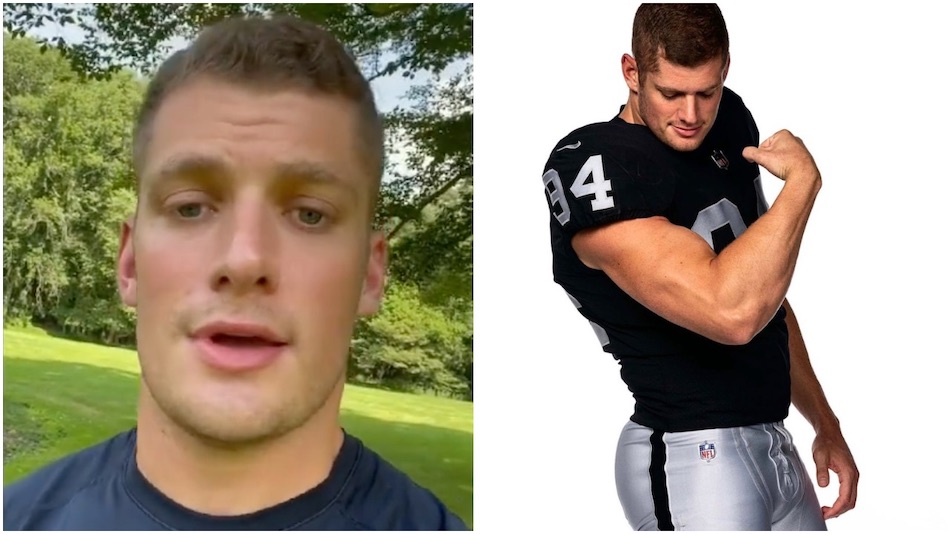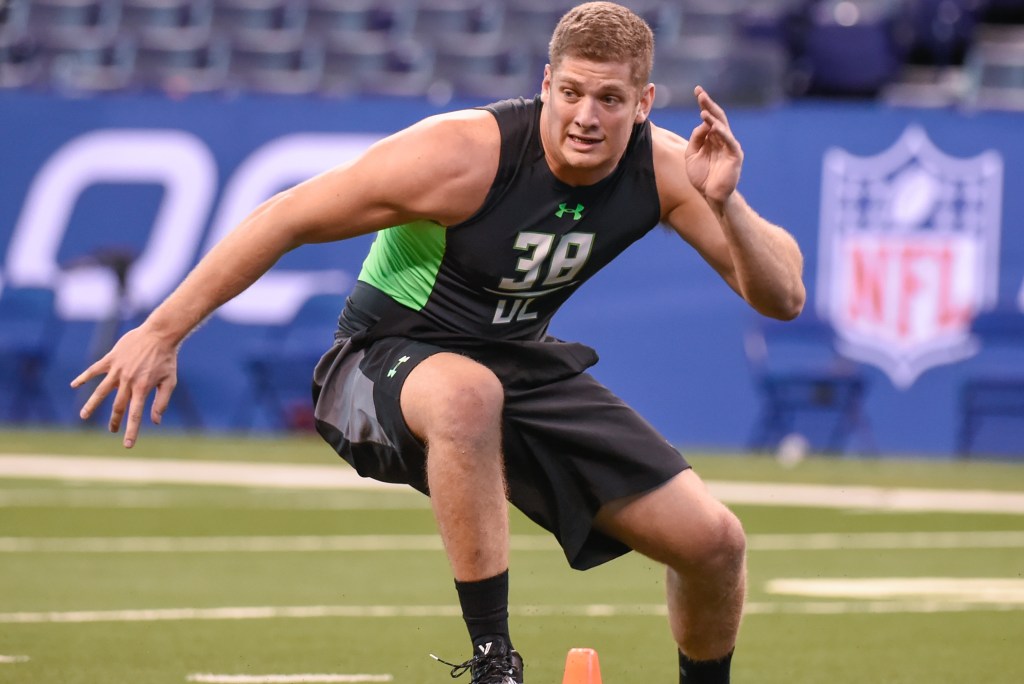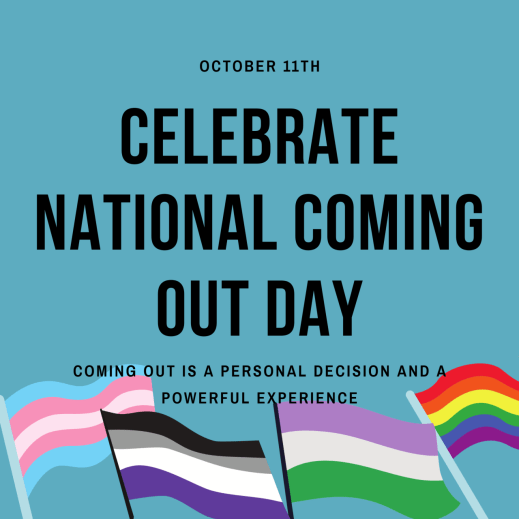
play to come out while he is still active in the league.
Carl Nassib—former All-America football player for Penn State, who has since played in the NFL on the Tampa Bay Buccaneers, the Cleveland Browns, and currently the Las Vegas Raiders—came out as gay earlier this week in a video in which he also announced he had made a large donation to the Trevor Project, and explained why people ought to also donate to the largest non-profit organization dedicated to the prevention of suicide among LGBTQ youth.
Members of his own team and leaders within the National Football League management immediately chimed in with messages of support and congratulations. The internet erupted with other people reacting with encouragement—given that other gay NFL players have never felt it was safe to come out, and the only gay player who was out before he was drafted was not met with anything that could be described as a welcoming attitude from the league just seven years ago.
So it was a bit of a surprise that the league seemed to be reacting supportively.
Not everyone reacted quite so well: While NFL player Carl Nassib comes out, homophobes go overboard pretending that they don’t care.
All of those homophobes have been screaming that they don’t care, and then making the angry bad attempts at sexual insults. Coincidentally, on one of my other blogs, another homophobe sent me some angry messages in response to my posting of several Pride Month images. The phrase, “No one f—ing cares!” was repeated several times in those messages, too.
First, anyone who angrily yells or posts a comment asserting that “No one cares” when a queer person expresses anything about their lives, has just admitted that they care entirely way too much. They have also admitted that they are hateful bigots who lose their temper any time they are reminded that not everyone is straight.
Nassib responded to the people those (disingenuous) questions asking why he has to make an announcement. “Studies have shown that all it takes is one accepting adult to decrease the risk of an LGBTQ kid attempting suicide by 40%. Whether you’re a friend, a parent, a coach, or a teammate — you can be that person.”
One of the first studies to show that was published by the George H.W. Bush administration. Bush tasked the National Institutes of Health with determining how to reduce teen suicide, and the conclusion was that the most teen suicides would be if parents were encouraged to tell their children that they would still love and accept them if they were gay.
This is one of the reasons I say every year around National Coming Out Day and during Pride Month that queer adults should be out. It makes your life better not to constantly hiding a secret and fearing discovering, but it also makes it more likely that younger queer people will live—period.
So, I’m happy for Nassib. Even if it does mean that I have to reinstate the search on my DVR to record Raiders games, again.













